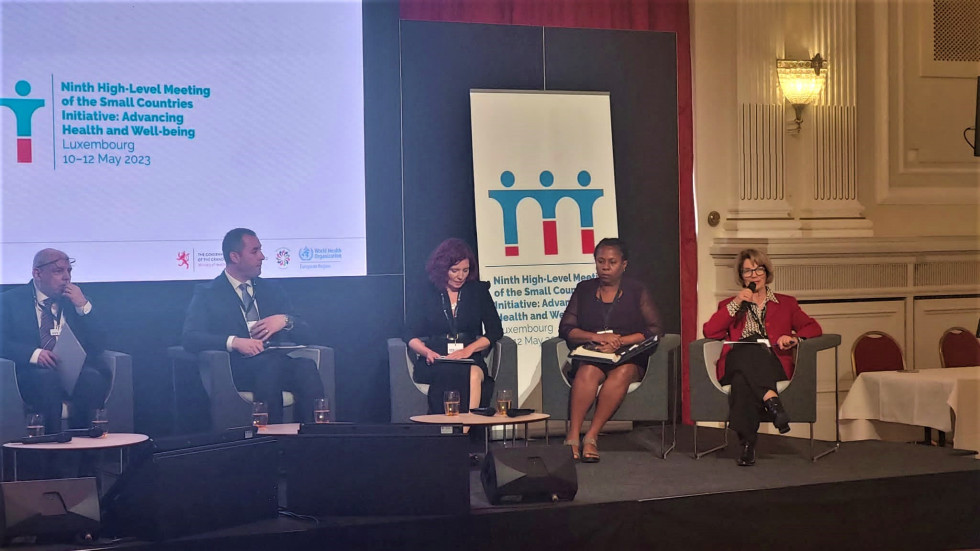The WHO/Europe Small Countries Initiative
The subject of the session was the promotion of health and well-being. Xavier Bettel, Prime Minister of Luxembourg, emphasised the importance of cooperation between small countries, which have different conditions and priorities than larger ones. He drew particular attention to the problem of access to medicines, migration of health workers, and dependence on energy and other resources. Moreover, he highlighted the necessity of uniting small countries, as together they can participate more successfully in international negotiations and defend their specific interests, e.g. issues regarding access to medicines.
During the round table discussions, delegations discussed the concept of the ‘economy of wellbeing’ (a unique opportunity to promote health and healthcare as a political priority), the inequalities that are increasing in small countries, and the need to develop innovative approaches that will address the many challenges health systems are faced with. Iceland’s Minster of Health, Willum Por Porsson, emphasised that Economic crises affect small countries more than larger ones, therefore they have to react differently and look for alternative solutions. "After the experience of the last financial crisis, Iceland introduced indicators for the achievement of sustainable development objectives, pursued under the consensus of the entire society," he said. Small countries are particularly sensitive to shortages of new medicines, are less equipped to negotiate with the pharmaceutical industry, and have more problems with supply chains and shortages of medicines, given the small size of their markets.
Slovenia participated in the panel on the management of chronic non-communicable diseases, and related commercial determinants of health. The delegations noted that great progress has been made, but that commercial industries still wield excessive influence when it comes to tobacco control, and alcohol and food policy. State Secretary Azra Herceg warned that "this is a problem that can only be addressed with decisive international action and cooperation, as it is mostly not about national producers, but rather global industries". She emphasised the importance of strengthening primary health care in preventive activities, and connecting health care with education, social work centres, and non-governmental organisations in local environments, addressing the needs of the most vulnerable groups of the population, which, for various reasons, do not benefit from preventive programmes and services that are otherwise available to them free of charge in Slovenia.
At the end of the session, the heads of the delegations signed the Luxembourg Ministerial Statement, and marked International Nurses Day.
The Small Countries Initiative is a network of countries within the WHO European Region with 2 million or fewer inhabitants. In 2022, the countries adopted a plan for the years up to 2025, with which they committed to place health in their countries high on the political agenda, to defend the interests of small countries in the international arena, to encourage investment in health and well-being, to establish a platform for the exchange of best practices, and to monitor progress.


